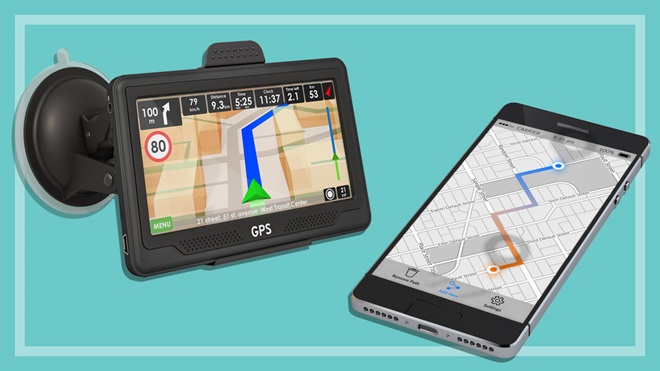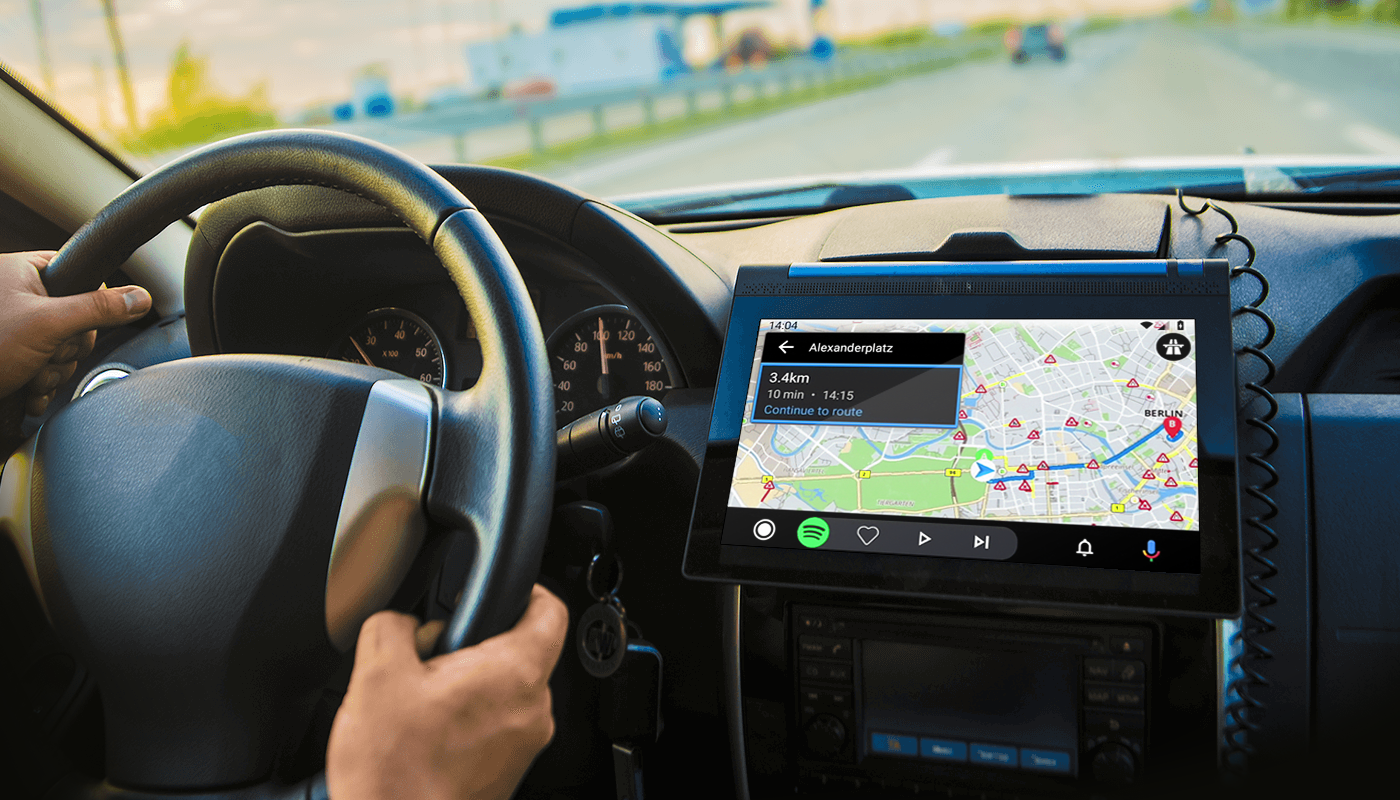
In an increasingly connected world, our vehicles have evolved far beyond mere modes of transport; they are now sophisticated data hubs, capable of collecting and transmitting a wealth of information about our movements and driving habits. While these integrated systems often promise enhanced safety, security, and convenience, they simultaneously introduce a growing complex landscape of privacy concerns for many car owners. The ability for a vehicle to constantly monitor its location, speed, and routes can feel invasive, raising legitimate questions about data ownership, potential misuse, and the erosion of personal autonomy.
Understanding these pervasive tracking technologies is the first step toward reclaiming control over your personal data. This comprehensive guide, crafted with the discerning consumer in mind, aims to demystify the intricacies of in-vehicle GPS trackers, illuminate the associated risks, and provide actionable insights into the various methods available for disabling or deactivating these devices. Our objective is to empower you with the knowledge needed to make informed decisions, ensuring a harmonious balance between enjoying modern vehicle features and safeguarding your privacy.
As we navigate through the technical and legal dimensions of vehicle tracking, we will explore both general approaches to counter these systems and specific considerations for popular manufacturers, equipping you with practical advice to manage your vehicle’s data transmission effectively and responsibly. Your control over your personal space, even on the road, remains paramount.

1. **The Rise of In-Vehicle Tracking: Understanding GPS Trackers**GPS (Global Positioning System) trackers have become an integral part of modern vehicles, transforming how we interact with our cars and how manufacturers manage their fleets. These sophisticated devices leverage satellite signals to pinpoint the precise location of a vehicle in real time, offering a myriad of functionalities that extend beyond simple navigation. From enhancing security to optimizing fleet management, their widespread usage is a testament to their versatile capabilities in today’s automotive landscape.
At their core, GPS trackers operate through a dual mechanism: a GPS receiver captures signals transmitted from orbiting satellites, which then determines the vehicle’s exact position. This location data is subsequently relayed by a transmitter to a central server or monitoring system, enabling vehicle owners or fleet managers to remotely observe the vehicle’s location, its current speed, and the routes it has traveled. This continuous stream of information forms the backbone of modern vehicle telematics, providing an unprecedented level of oversight.
Beyond basic location services, advanced GPS trackers are often equipped with additional features designed to offer deeper insights and control. These can include geo-fencing capabilities, which automatically alert users when a vehicle enters or exits a predefined geographical area, adding a layer of security or operational efficiency. Furthermore, some trackers incorporate diagnostic capabilities, offering valuable insights into the vehicle’s performance metrics and maintenance needs, thereby streamlining upkeep and potentially preventing costly breakdowns. The integration of these features makes GPS trackers highly functional tools, yet it also amplifies the scope of data collection and the associated privacy implications.

2. **Privacy at Stake: The Risks and Concerns of Vehicle Tracking**The widespread adoption of GPS trackers in vehicles, while offering undeniable benefits, has concurrently sparked a myriad of concerns regarding privacy and the potential risks associated with constant surveillance. For many individuals, the foremost apprehension revolves around privacy invasion, as the continuous monitoring of a vehicle’s location, speed, and routes generates sensitive data. This pervasive data collection raises valid concerns about the potential misuse of such information, leading to feelings of unease about their movements being meticulously tracked and potentially infringing upon their fundamental privacy rights.
Beyond the immediate feeling of being watched, the accumulation of detailed location data over time presents inherent security risks that cannot be overlooked. Should this wealth of personal information fall into unauthorized hands, it could be exploited for nefarious purposes, ranging from stalking and burglary to targeted attacks against individuals or their property. This vulnerability is particularly pronounced in scenarios where GPS tracking data is not adequately secured or encrypted, leaving it susceptible to unauthorized access and malicious intent, thereby jeopardizing personal safety and security.
Furthermore, GPS trackers have unfortunately been misused as tools for coercive surveillance, particularly in sensitive situations like domestic abuse or harassment. In such cases, these devices have been illicitly deployed to monitor and control the movements of individuals, fostering a climate of fear and intimidation. This stark misuse underscores the potential for GPS tracking technology to be wielded as a means of abuse rather than for its intended purposes of safety and convenience, highlighting a critical ethical dimension to their proliferation.
Finally, the pervasive reliance on GPS trackers can introduce a sense of technological dependence that some individuals perceive as intrusive or overbearing, leading to reservations about the erosion of personal autonomy. Constant monitoring can feel like a constraint on one’s freedom of movement and decision-making, impacting the psychological sense of privacy. Coupled with the evolving landscape of data privacy regulations and the ethical implications of pervasive tracking, it becomes imperative for vehicle owners to have the autonomy to make informed decisions regarding the usage of GPS trackers in their vehicles, critically assessing the implications on their privacy and personal agency.

3. **Physical Removal: Directly Disconnecting the Tracker**One of the most direct and straightforward methods for disabling a GPS tracker, provided it is accessible, is physical removal. This approach involves locating the device within the vehicle and then disconnecting it from its power source, effectively rendering it inoperative. Trackers can be cunningly concealed in various locations within a vehicle’s interior or even externally, requiring a thorough inspection to pinpoint their exact placement.
Undertaking physical removal typically necessitates a certain degree of technical proficiency and familiarity with the vehicle’s components. Modern vehicles are complex, with intricate wiring systems and various modules, so identifying and safely disconnecting a tracker without inadvertently affecting other critical systems is paramount. Tools such as flashlights, mirrors on extendable rods, screwdrivers, and wrenches may be required, and in some cases, even specialized GPS bug detectors can assist in locating hidden devices. Proper identification of the tracker is crucial to avoid tampering with legitimate vehicle systems.
However, it is vital to approach physical removal with careful consideration of the legal and ethical implications. While an individual may have valid privacy reasons for wanting to remove a tracker from their own vehicle, any unauthorized modification could potentially violate terms of a lease or finance agreement, or even void certain aspects of the vehicle’s warranty. Moreover, some advanced trackers are designed to send alerts when they are tampered with or disconnected, which could have unintended consequences. Thus, understanding these potential repercussions before proceeding with physical removal is an essential step for any vehicle owner.

4. **Signal Interference: Using Jammers and Blockers**For those seeking to prevent their vehicle’s location data from being transmitted without physically altering the device, signal interference offers a technologically advanced, albeit legally complex, alternative. GPS jamming devices are specifically designed to disrupt the signals received by GPS trackers, effectively preventing them from functioning accurately. These devices operate by emitting radio frequency signals that interfere with the legitimate GPS signals from satellites, causing the tracker to lose its ability to determine the vehicle’s location reliably.
Similarly, signal blockers, often referred to as GPS signal blockers or GPS signal jammers, are engineered with the express purpose of impeding the transmission of GPS signals. When deployed in the vicinity of a GPS tracker, these blockers obstruct the reception of satellite signals, thereby severing the tracker’s ability to communicate its location data to a central system. The goal here is to create an electronic ‘dead zone’ around the tracker, ensuring that no accurate positional information can be captured or transmitted.
However, a critical caveat accompanies the use of both GPS jamming devices and signal blockers: their legality. It is imperative for individuals to understand that the use of such signal interference devices is subject to stringent legal restrictions and prohibitions in many jurisdictions. These devices, which intentionally disrupt radio frequency communications, can interfere with essential communication systems, including emergency services and air traffic control. Consequently, deploying them without proper authorization can lead to severe legal penalties, making it crucial for consumers to familiarize themselves with applicable laws before considering these methods. The desire for privacy must always be weighed against legal compliance and public safety.

5. **Software-Based Deactivation: Disrupting Data Transmission**Beyond physical removal or external jamming devices, another set of methods for deactivating GPS trackers focuses on disrupting the transmission of location data without directly tampering with the physical device itself. This approach can be particularly appealing when physical access is difficult or when maintaining the tracker’s presence, albeit non-functional, is desired. Signal disruption, utilizing GPS signal blockers or jammers, falls into this category by emitting radio frequency signals that impede the reception of GPS signals, effectively rendering the tracker unable to transmit accurate location data.
An even more sophisticated technique is signal spoofing, which involves transmitting false GPS signals to deceive the GPS tracker about the vehicle’s actual location. This method demands specialized equipment and significant technical expertise to generate counterfeit GPS signals that can override and manipulate the authentic location data received by the tracker. By effectively feeding the tracker misleading information, the accuracy of its reported location is compromised, leading to its deactivation from a data integrity standpoint. It essentially makes the tracker ‘lie’ about the vehicle’s whereabouts.
GPS signal masking offers a less aggressive, yet effective, software-based deactivation strategy. This technique entails shielding the GPS tracker from receiving satellite signals, thereby preventing it from determining the vehicle’s precise location. This can be achieved through the strategic placement of GPS signal-blocking materials or the use of specialized enclosures designed to inhibit the reception of GPS signals by the tracker. By effectively masking the signals, the tracker’s ability to transmit accurate location data is nullified, resulting in its deactivation without direct physical modification.
As with other methods, approaching the deactivation of GPS trackers through signal disruption, spoofing, or masking requires a keen awareness of the legal and ethical considerations. While individuals may have legitimate reasons for wanting to deactivate GPS trackers in their vehicles, it is essential to adhere to applicable laws and regulations governing the use of GPS technology and signal interference devices. Understanding these methods empowers individuals to make informed choices regarding the management of GPS tracking technology in their vehicles, aligning their actions with both their privacy preferences and legal obligations.

6. **Seeking Expert Help: When Professional Assistance is Needed**In many instances, the intricate integration of GPS trackers into a vehicle’s complex systems or the sheer challenge of locating a covertly installed device can make DIY disabling attempts impractical or even risky. Modern automotive design often incorporates tracking technology deeply within the vehicle’s electronics, making it difficult for an average owner to access or identify without specialized knowledge and tools. This is where the invaluable expertise of professional assistance becomes paramount.
When a GPS tracker is intricately integrated into the vehicle’s systems, or if its precise location proves challenging to ascertain, seeking professional assistance from experienced technicians or automotive specialists is highly advisable. These professionals possess the necessary expertise, diagnostic tools, and in-depth knowledge of vehicle architectures to accurately locate and effectively disable GPS trackers. Their training enables them to navigate the complexities of vehicle wiring and electronic control units, minimizing the risk of damage to other essential vehicle components during the process.
Entrusting the task to qualified technicians not only increases the likelihood of a successful and safe disablement but also helps to mitigate potential risks such as voiding warranties or inadvertently impairing other critical vehicle functionalities. While it may involve an upfront cost, professional assistance provides peace of mind, ensuring that the tracking device is handled correctly and any subsequent impacts on the vehicle are properly managed. This approach aligns with a consumer-empowerment ethos, as it helps individuals achieve their privacy goals through safe and legitimate means, without compromising the overall integrity or functionality of their valuable asset.



